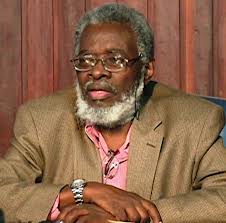
Guyana is expected to take firm steps to comply fully with its obligations under the Montreal Protocol of the Vienna Convention for the protection of the ozone layer, which will soon result in the banning and phasing out of substances which can deplete the ozone.
The need to ban and phase out these harmful substances and gases has been backed-up by research done internationally by scientists and environmentalists who argue that they are destroying the ozone layer, resulting in ultraviolet radiation from the sun. Research has also shown that these substances and gases can lead to skin cancer, cataracts and damage to the animal and plant life.
Regulations
Cabinet Secretary Dr Roger Luncheon, addressing the media on Wednesday, announced that Cabinet had adopted regulations in March of this year which restricted the importation of the substances, while stating that a two-pronged approach has been decided on to ensure compliance with the general expectations of the treaty.
He said the Guyana Revenue Authority (GRA) has been identified as the enforcement agency which will have to implement the agreed on approach and has been given the mandate of detecting and seizing all equipment that are not incompliance with the treaty, but are being imported for use.
“In those instances where the new equipment does not comply with our treaty obligations, the cost of non-compliance will devolve on the importers. Equipment would be seized, the gas would be retained by GRA and, of course, its re-export to the suppliers by the non-compliant importer would be enforced,” Luncheon declared.
Compliance
He also emphasised that the government was determined to ensure compliance at the various levels of the society and would not be wavering on its positions as far as its treaty obligations were concerned. Dr Luncheon said too that the second approach to be rolled out would seek to address those domestic, national and commercial entities which are already in breach of the ozone treaty. He said that a decision was taken to phase out the “offending equipment” using an “incremental approach” over the next couple of years.
The move to phase out the existing equipment will not happen immediately as the users of offending refrigerators, freezers, air conditioning units and such like equipment will have until 2040 to come into compliance.
Asked about the public education and awareness programme that would be necessary to ensure conformity and an understanding of government’s international obligations to the treaty, Dr Luncheon responded that already work in this area has begun.
He advised that government through the GRA and several other stakeholders have been engaging various importers and stakeholders to establish an understanding of the changes and new rules which would apply to the country.
Public awareness
The Cabinet secretary did not hold the view that there would be any attempt to oppose the spirit of the treaty while advising that alternative steps will have to be taken to heighten public awareness about the need to bring an end to the use and promotion of ozone depleting substances.
The announcement made by the Cabinet secretary was expected according to several private sector businessmen who said that it was unlikely that the government would not honour its international obligation, especially with regards to the environment, given the country’s Low Carbon Development Strategy.



